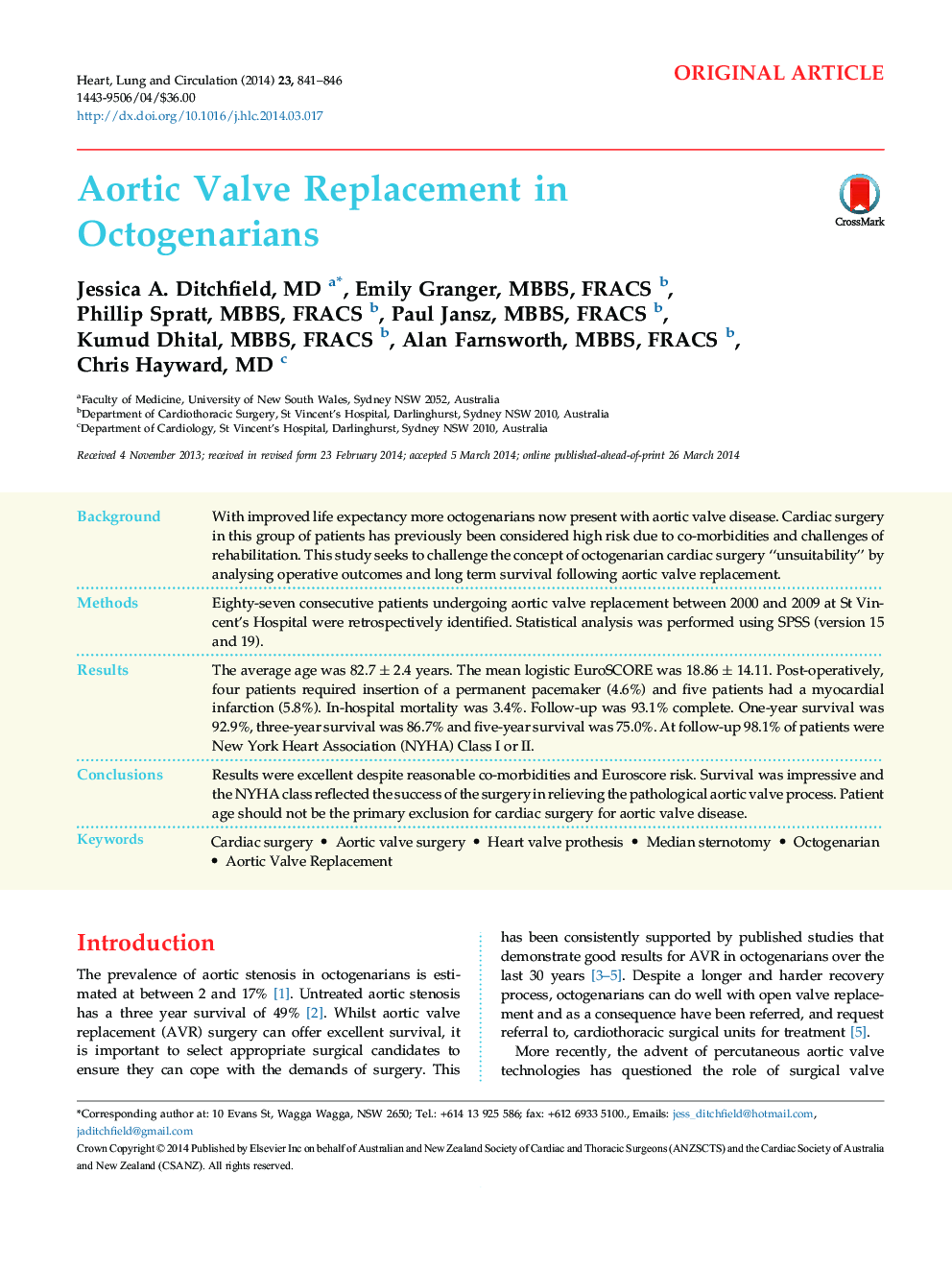| Article ID | Journal | Published Year | Pages | File Type |
|---|---|---|---|---|
| 2917921 | Heart, Lung and Circulation | 2014 | 6 Pages |
BackgroundWith improved life expectancy more octogenarians now present with aortic valve disease. Cardiac surgery in this group of patients has previously been considered high risk due to co-morbidities and challenges of rehabilitation. This study seeks to challenge the concept of octogenarian cardiac surgery “unsuitability” by analysing operative outcomes and long term survival following aortic valve replacement.MethodsEighty-seven consecutive patients undergoing aortic valve replacement between 2000 and 2009 at St Vincent's Hospital were retrospectively identified. Statistical analysis was performed using SPSS (version 15 and 19).ResultsThe average age was 82.7 ± 2.4 years. The mean logistic EuroSCORE was 18.86 ± 14.11. Post-operatively, four patients required insertion of a permanent pacemaker (4.6%) and five patients had a myocardial infarction (5.8%). In-hospital mortality was 3.4%. Follow-up was 93.1% complete. One-year survival was 92.9%, three-year survival was 86.7% and five-year survival was 75.0%. At follow-up 98.1% of patients were New York Heart Association (NYHA) Class I or II.ConclusionsResults were excellent despite reasonable co-morbidities and Euroscore risk. Survival was impressive and the NYHA class reflected the success of the surgery in relieving the pathological aortic valve process. Patient age should not be the primary exclusion for cardiac surgery for aortic valve disease.
